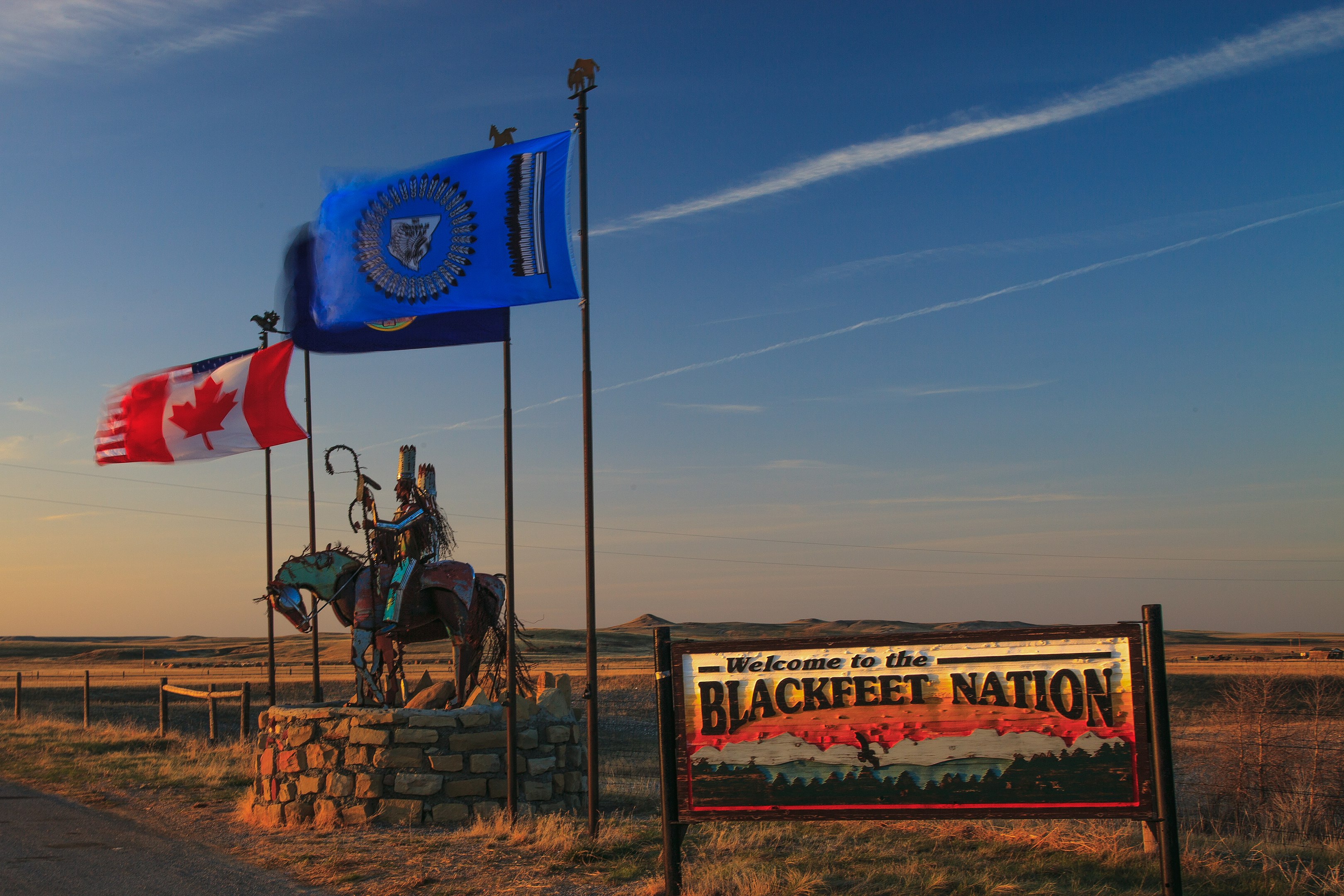
- Details
- By Native News Online Staff
The Department of the Interior announced on Thursday that nearly 5,000 landowners with fractional interests at the Blackfeet Reservation have been sent more than $130 million in purchase offers from the Land Buy-Back Program for tribal nations.
Those landowners who are interested in selling have 45 days or until December 13, 2021 to submit their signed agreements.
Want more Native News? Get the free daily newsletter today.
The Buy-Back Program implements the land consolidation component of the Cobell Settlement, which provided $1.9 billion to consolidate fractional interests in trust or restricted land within a 10-year period set to expire in November 2022. As of September 28, 2021, approximately $91 million remains.
“The Buy-Back Program is collaborating with the Blackfeet Nation towards our shared goals of promoting informed decision making among landowners and maximizing the consolidation of fractional interests.” Assistant Secretary – Indian Affairs Bryan Newland said. “We are pleased to be building on the achievements of past implementations at the Blackfeet Reservation, which resulted in the consolidation of more than 184,300 fractional interests and more than 435,00 equivalent acres.”
Various informational tools are available to landowners, who are encouraged to think strategically about their options and carefully consider how to use the funds they receive from selling their land. For example, the Program’s website includes:
- detailed frequently asked questions, available at https://www.doi.gov/buybackprogram/faq,and
- additional information to help individuals make informed decisions about their land, available at https://www.doi.gov/buybackprogram/informeddecisionmaking.
Landowners can contact the Trust Beneficiary Call Center at 888-678-6836 or [email protected] with questions about their land and/or purchase offers, or to request a copy of an appraisal report for any appraised tract in which they have an owner interest.
Landowners can also contact their local Bureau of Trust Funds Administration office with additional questions.
More Stories Like This
Native News Weekly (August 25, 2024): D.C. BriefsUS Presidents in Their Own Words Concerning American Indians
Native News Weekly (December 14, 2025): D.C. Briefs
Wounded Knee Massacre Site Protection Bill Passes Congress
Two Murdered on Colville Indian Reservation
Help us defend tribal sovereignty.
At Native News Online, our mission is rooted in telling the stories that strengthen sovereignty and uplift Indigenous voices — not just at year’s end, but every single day.
Because of your generosity last year, we were able to keep our reporters on the ground in tribal communities, at national gatherings and in the halls of Congress — covering the issues that matter most to Indian Country: sovereignty, culture, education, health and economic opportunity.
That support sustained us through a tough year in 2025. Now, as we look to the year ahead, we need your help right now to ensure warrior journalism remains strong — reporting that defends tribal sovereignty, amplifies Native truth, and holds power accountable.
 The stakes couldn't be higher. Your support keeps Native voices heard, Native stories told and Native sovereignty defended.
The stakes couldn't be higher. Your support keeps Native voices heard, Native stories told and Native sovereignty defended.
Stand with Warrior Journalism today.
Levi Rickert (Potawatomi), Editor & Publisher

